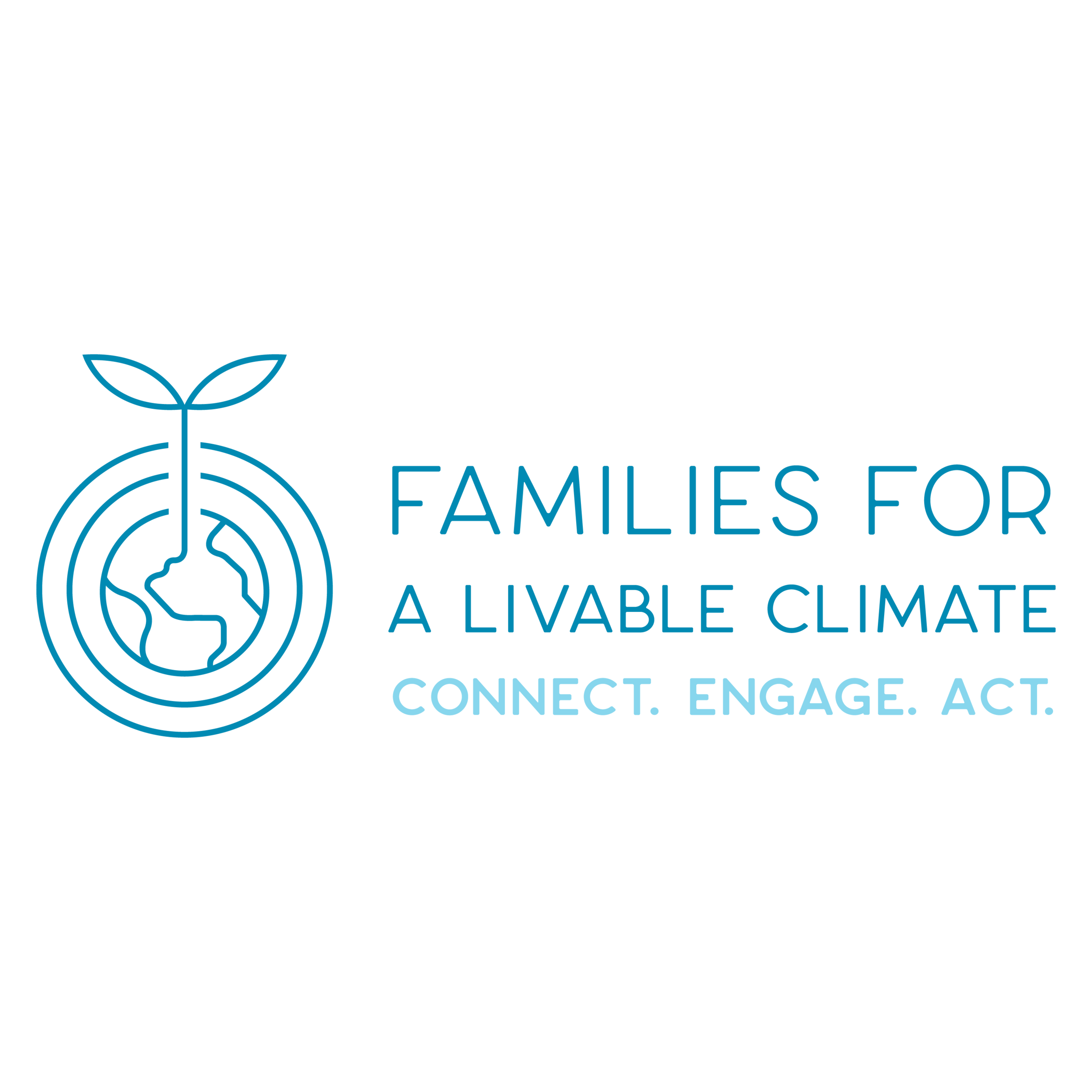Why climate demonstrations matter
On September 25, Families for a Livable Climate stood in solidarity with families across the country who are suffering the devastating effects of wildfire and hurricanes, and in solidarity with the Fridays for Future Global Day of Action. We created a shoe strike, handed out copies of The Changing Times, and a pledge to act for in-person participants to take with them, and use to get involved.
At moments, while milling around and visiting with our core families, and the new families who had joined us, I found myself feeling how symbolic the action was--holding space for our fears about the climate crisis, and our urgent cries for action--action to stop the fossil fuel freight-train and ensure ALL families will have a livable future. I was lifted by the symbolism and solidarity, and also I questioned it: Was this worth our time? Do climate demonstrations even matter?
I had answered this question for others in the past, saying yes, climate demonstrations keep an issue in the public eye and raise awareness, and they actually can change public opinion by first changing the conversations that we’re having. This can shift what is acceptable and reasonable to discuss in the public sphere. But in the moment of doubt I wondered, why does this matter? It’s not carbon reduction. It doesn’t stop a pipeline. It’s just conversation, community, and optics.
Then I recalled this quote from climate scientist Katherine Hayhoe, “If we don’t talk about it, we won’t care about it, and we won’t change.” And I dug into why this is true, now more than ever before.
In snapshot fashion, let’s consider five data visualizations from the Yale Program on Climate Change Communication’s outstanding Climate Opinion Maps (updated in September 2020):
1. 72% of Americans think global warming is happening. There is bi-partisan, rural and urban, concern.
2. 61% of Americans think global warming will harm people in the U.S.
3. But, only 43% think global warming will harm them personally.
Why do so many Americans feel they will be immune from the impacts of the climate crisis?
There probably are many factors -- it may feel overwhelming to accept it, it may feel far away some days, and disinformation may play a role, but another big factor to consider is the data on climate silence.
4. Only 35% of Americans discuss global warming at least occasionally, while 64% talk about it rarely or never.
5. And only 25% of Americans hear about global warming in the media once a week; while a whopping 74% hear about it once a month or less often.
Climate silence is a significant barrier that we must overcome.
While the movement and levels of awareness about the climate crisis were catalyzed by multiple factors in 2019. This year, we have rightly been talking about a lot of other imminent challenges to our families and nation: Covid, economic distress, racial discrimination, and more. But for many families in 2020, they have also had to face record-breaking wildfires, wildfire smoke, or hurricane after hurricane. And because of many passionate voices, climate came to the fore in the presidential race for the first time in 2020. Many people are talking about it, but it’s worth asking: what if we all were, and more often?
Passion to push for change is created in part through conversation, discussion, educational events—growing awareness all around you that something needs to shift, and in the case of the climate crisis, every day we continue to emit huge amounts of greenhouse gases matters. Demonstrations play a role in keeping the issue in the public eye.
But even more so, consistent, thoughtful conversation is a critical missing piece of building our movement, and making change. We must bring the issue into the light. Demonstrations are one of the windows—one way to catch the eyes and hearts of our community. One chance to say the truth, share the truth together, so that more of us can support the work toward solutions, and not feel so alone.
Map data from the Yale Program on Climate Change Communication’s Climate Opinion Maps.





